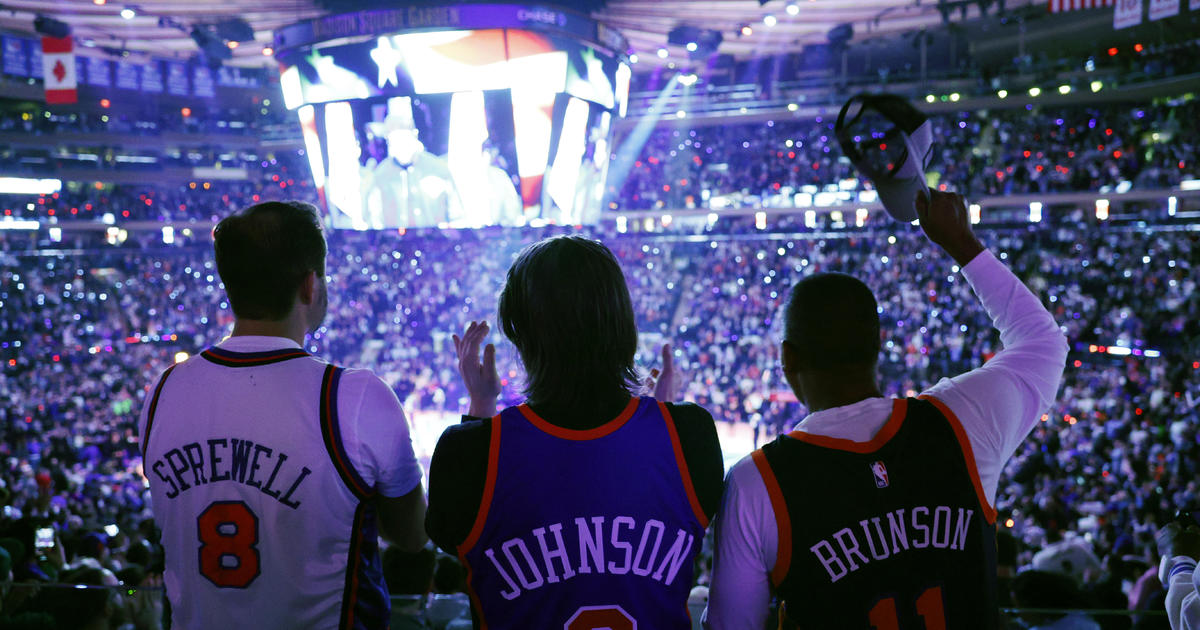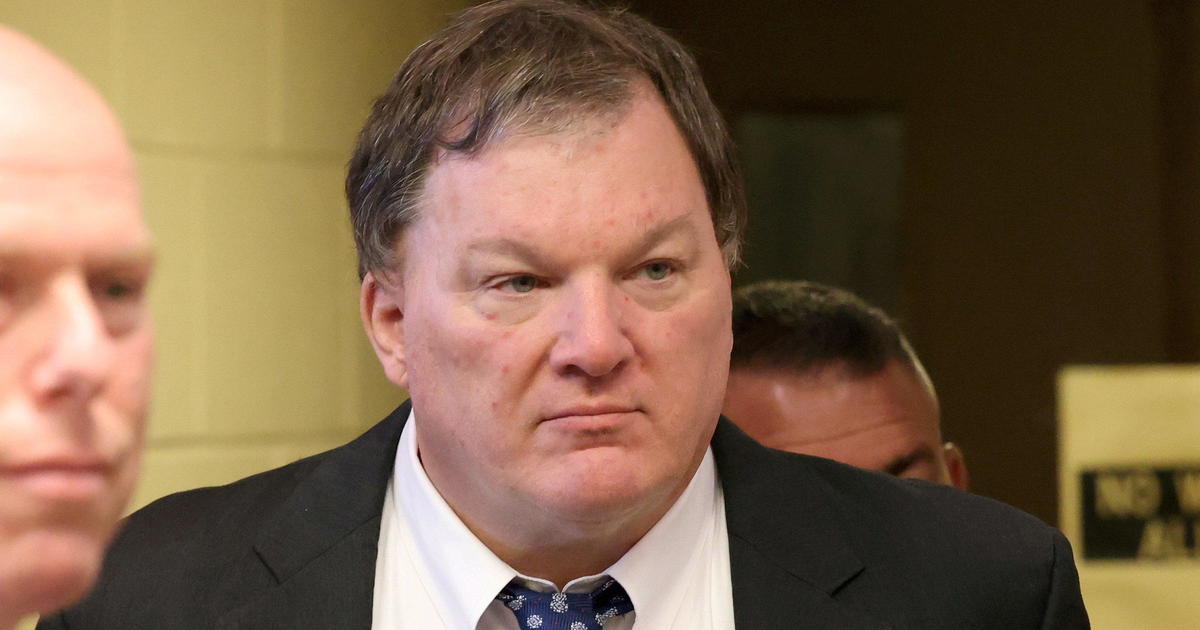Obama Calls For Dismantling ISIS 'Network Of Death'
NEW YORK (CBSNewYork/AP) -- Declaring the world at a "crossroads between war and peace,'' President Barack Obama vowed Wednesday to lead a coalition to dismantle the Islamic State militant group's "network of death'' that has wreaked havoc in the Middle East and drawn the U.S. back into military action in the region.
Speaking to the annual gathering of the United Nations General Assembly, Obama said the U.S. would be a "respectful and constructive partner'' in confronting the militants through force.
WATCH: Click Here For The President's Full Address To The UN General Assembly
But he also implored Middle Eastern nations to take the lead in addressing the conditions that have sparked the rise of extremists, including cutting off funding to terror groups.
"Ultimately, the task of rejecting sectarianism and extremism is a generational task -- a task for the people of the Middle East themselves,'' Obama said. "No external power can bring about a transformation of hearts and minds.''
The president's remarks came against the backdrop of an expanded U.S. military campaign against the Islamic State group, with airstrikes now hitting targets in both Iraq and Syria. CBS News has confirmed the U.S. and its Arab allies have launched more airstrikes against Islamic terorrists in Syria.
Meanwhile, an Algerian group linked to ISIS has beheaded French hostage Herve Gourdel, who was abducted Sunday.
As CBS 2's Tony Aiello reported, Obama avoided the polite language of diplomacy as he took aim at ISIS.
"There can be no reasoning, no negotiation with this brand of evil," he said. "The only language understood by killers like this is the language of force."
A coalition of five Arab nations joined the U.S. this week in the strikes in Syria: Bahrain, Jordan, Saudi Arabia, United Arab Emirates and Qatar.
"Already, over 40 nations have offered to join this coalition," Obama said. "Today, I ask the world to join in this effort."
Late Wednesday afternoon, the president scored a victory when the United Nations Security Council adopted a resolution to enact a global ban on travel by fighters trying to join overseas conflicts. The ban aims specifically at young would-be jihadists who are trying to reach ISIS-controlled territory in Syria and Iraq.
Obama also addressed ways the U.S. has sought to mobilize international action to resolve the Ebola crisis, including dispatching U.S. troops to West Africa to help deal with the Ebola outbreak.
"As we speak, America is deploying our doctors and scientists – supported by our military – to help contain the outbreak of Ebola and pursue new treatments," he said. "But we need a broader effort to stop a disease that could kill hundreds of thousands, inflict horrific suffering, destabilize economies and move rapidly across borders"
Obama took on Russia directly in his remarks, accusing Moscow of sending arms to pro-Kremlin separatists, refusing to allow access to the site of a downed civilian airliner and then moving its own troops across the border with Ukraine.
"This is a vision of the world in which might makes right, a world in which one nation's borders can be redrawn by another, and civilized people are not allowed to recover the remains of their loved ones because of the truth that might be revealed,'' Obama said. "America stands for something different.''
Still, Obama held open the prospect of a resolution to the monthslong conflict between Russia and Ukraine. While he has previously expressed skepticism about a fragile cease-fire signed earlier this month, he said Wednesday that the agreement "offers an opening'' for peace.
If Russia follows through on the agreement, Obama said the U.S. will lift economic sanctions that have damaged Russia's economy but so far done little to shift President Vladimir Putin's approach.
As Obama spoke, Russian Foreign Minister Sergei Lavrov sat in the audience at the U.N., staring down at a stack of papers without glancing up at Obama.
The chaotic global landscape Obama described Wednesday stood in contrast to his remarks at the U.N. one year ago, when he spoke of diplomatic openings on multiple fronts.
At the time, the U.S. was embarking on another attempt to forge an elusive peace between Israelis and Palestinians and there were signs of a thaw in the decades-old tensions between the U.S. and Iran.
The Mideast peace talks have since collapsed, though the president said Wednesday that "as bleak as the landscape appears, America will never give up the pursuit of peace.''
And while the U.S., Iran and world powers are now in the midst of nuclear negotiations, the talks are deadlocked and there is skepticism about whether a deal can be reached by a Nov. 24 deadline.
"My message to Iran's leaders and people is simple: Do not let this opportunity pass,'' Obama said. "We can reach a solution that meets your energy needs while assuring the world that your program is peaceful.''
After his speech, Obama attended a lunch with other heads of state. He was also scheduled to hold his first one-on-one meeting with new Iraqi Prime Minister Haider al-Abadi, who took office earlier this year.
Also Wednesday, United Nations Secretary-General Ban Ki-moon called on world leaders to join an international campaign to ease the plight of nearly unprecedented numbers of refugees who have been displaced by wars in the Ebola epidemic.
Ban said leaders must find and nurture ``seeds of hope'' in the turmoil and despair of a world that may seem like it's falling apart with people crying out for protection from greed and inequality.
``Not since the end of the Second World War have there been so many refugees, displace people and asylum seekers. Never before has the United Nations been asked to reach so many people with emergency food assistance and other life-saving supplies,'' Ban said in his state of the world address at the opening of the U.N. General Assembly's annual ministerial meeting.
Several leaders including Jordan's King Abdullah and Turkey's President Recep Tayyip Erdogan addressed the challenges -- financial and social -- of hosting hundreds of thousands of refugees from Syria.
Abdullah, whose country is sheltering nearly 1.4 million Syrians, said the refugee crisis ``demands a global solution.''
``To date, the response has not kept pace with the real needs,'' he said.
Check Out These Other Stories From CBSNewYork.com:
(TM and © Copyright 2014 CBS Radio Inc. and its relevant subsidiaries. CBS RADIO and EYE Logo TM and Copyright 2014 CBS Broadcasting Inc. Used under license. All Rights Reserved. This material may not be published, broadcast, rewritten, or redistributed. The Associated Press contributed to this report.)



